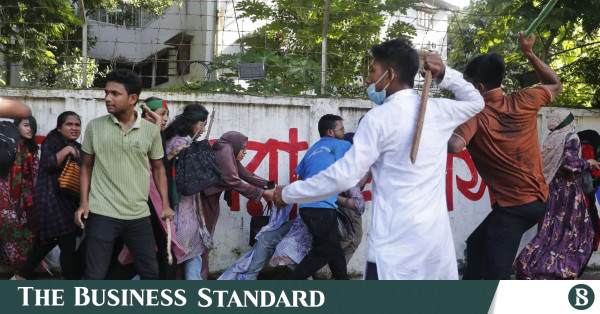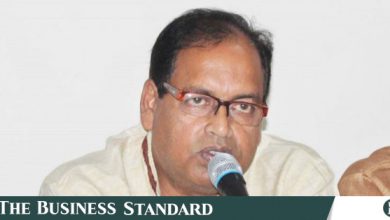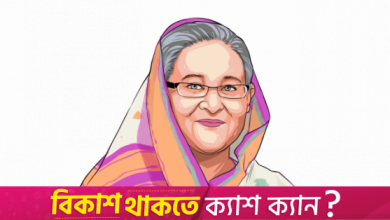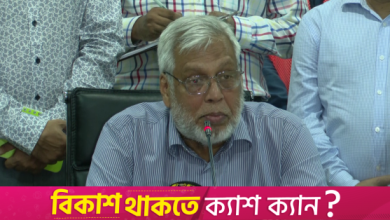A day of bloodshed and disruption


The quota reform movement, also known as the Bangla Blockade, has intensified across the country, leading to violent clashes, fatalities, and widespread disruption.
The protests Tuesday turned deadly in multiple cities.
One person was killed during clashes between the quota protesters and Bangladesh Chhatra League (BCL) activists in front of Dhaka College in the capital. The victim was critically injured with a sharp weapon and later succumbed to his wounds at Dhaka Medical College Hospital.
In the port city of Chattogram, three people were killed during clashes between quota reform activists and members of the BCL and Jubo League. Two of them were hit by bullets. Their bodies were sent to Chattogram Medical College Hospital.
A student of Begum Rokeya University, Abu Sayed, was killed during a confrontation with police in Rangpur. This brings the death toll in the ongoing protests to six.
In response, para-military BGB troops were deployed in Dhaka, Chattogram, Rajshahi and Bogra.
Nationwide disruption
The protests have caused significant disruptions across the country Tuesday.
Major roads and communication channels in Dhaka and other cities were blocked by demonstrators.
The blockade led to a standstill in public transportation in the capital. Long-distance buses were halted. Rail communications were also disrupted
Broader participation and clashes
Students from private universities and colleges also joined the protests Tuesday, adding momentum to the current movement.
Institutions such as BRAC University, North South University, American International University-Bangladesh, and several others have seen their students taking to the streets in solidarity with public university students.
The situation was marked by violent clashes with the police and BCL members.
In multiple incidents, BCL members attacked protesters with firearms, sticks, and other lethal weapons, leading to numerous injuries
38 flights delayed due to road blockade by quota protesters
At least 38 flights on domestic and international routes were delayed today (16 July) due to passengers being stranded in traffic as anti-quota protesters blocked different city roads, according to airport sources.
Students from different private universities including Northern, AIUB, North South, and BRAC universities blocked major roads, including Uttara, Kuril Bishwa Road, Nadda, and Badda, causing massive traffic congestion.
Due to the traffic congestion, hundreds of passengers could not reach Hazrat Shahjalal International Airport for their flights.
Teachers join the movement
Teachers from several universities also joined the protests.
In Khulna, teachers and students blocked the Khulna-Jashore highway, leading to significant traffic disruptions.
Reports emerged that a number of teachers from Jahangirnagar University, including Adil Mohammed Khan and Uzzwal Mondol, expressed their solidarity with the students.
A teacher was injured on the JU campus Monday night. Later, it turned into a hub of protests joined by students from different colleges in the adjoining areas.
Government response
Awami League General Secretary Obaidul Quader has warned of appropriate action against the protesters in due time.
At a press conference, he emphasised that the government would not tolerate any public suffering caused by these movements. He condemned the violence and assured that the government would take necessary measures to maintain law and order.
Political supports and solidarity
The opposition Bangladesh Nationalist Party (BNP), has expressed support for the quota reform movement.
Chhatra Dal, the student wing of BNP, has formally announced its solidarity with the protesters. Its President Rakibul Islam Rakib called for unity among students to challenge the current government and fight for a more equitable society.
Call for resolution
As the protests continue, there is a growing call for a peaceful resolution to the crisis.
The Anti-discrimination Students’ Movement, which is leading the protests, has outlined demands for the abolition of the existing quota system, fair quotas for minority groups and disabled individuals, and a maximum quota of 5% for any group.
The movement seeks a definitive solution from the government, beyond the interim measures ordered by the courts.
Civil society leaders said that the escalating violence and increasing number of casualties underscore the urgent need for dialogue and resolution.
They urged both the government and the protesters to find common ground and restore peace and stability.




